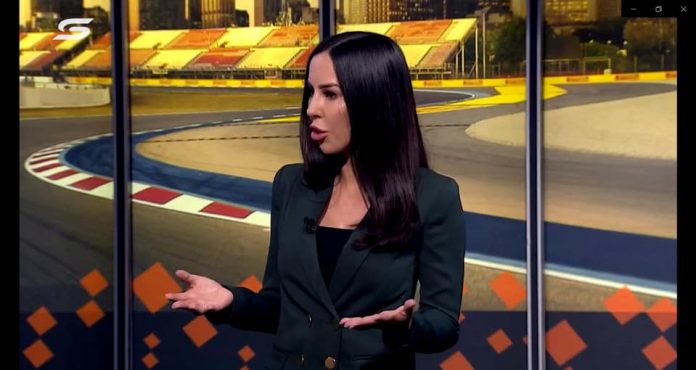M.
Inistry of Sport spoke to the head of the digital transformation of supercars, Dijana Barbarich, about the most important digital strategies that are being implemented and about where opportunities for the sport arise.
Basics are essential
Barbarich worked for the NSW government and Channel 7’s breakfast program Sunrise for nearly a decade, joining Supercars in 2020.
Barbarich said that working in sport is a very unique environment, although they did well in turning the audience’s experience into brands.
“It’s a completely different ball game,” said Barbarich to the Ministry of Sports.
“I was used to the tabloid, so the difference in sport, in my opinion, was day and night.
“What I’ve learned in both roles is that it comes down to generating amazing content.
“It’s an incredible time for content creators.
“We are in a golden age of storytelling.
“There are so many services and platforms,” she said.
Barbarich said it had been a unique start at Supercars as she had to navigate COVID-19 in her new position just a month after she started.
“The only thing I noticed about supercars at the beginning is that things are done quickly,” said Barbarich.
“You have an idea – it happens two weeks later.
“I planned to watch and make no changes for the first 90 days, but I didn’t consider a global pandemic.
“Four weeks after I joined, COVID struck, so changes and adjustments had to be made.
“It was without a doubt the toughest start I’ve had for a role,” she said.
Despite the significant impact of a global pandemic, Barbarich said she maintained the core beliefs and practices that she had followed throughout her career.
“Our digital strategy is all about the flawless implementation of the basics,” said Barbarich.
“We want to maximize audience growth and fan engagement by putting our fans at the center of everything we do in the digital world,” she said.
Content is still king
A strong focus on content underpins Barbarich’s digital strategy.
Without them, she says, it becomes harder to generate revenue and increase fan engagement.
“Content will be the key for us – we have to generate content that people fall in love with again,” said Barbarich.
Beyond the content, according to Barbarich, it is about creating solid digital foundations, including a “Research First Approach”, including developing new products such as their website and app, as well as forming strategic partnerships with big tech and digital commercialization.
Supercars were quick to implement key digital partnerships, including working with Greenroom Digital, which has worked with the English Premier League, Formula 1, AFL and NRL.
The partnership was formed to advance the sport’s digital commercialization strategy with the aim of increasing sponsorship value while maintaining the existing core sponsorship model.
This is in addition to a recent global partnership with YouTube that allows Supercars fans outside Australia and New Zealand to sign up for SuperView on the Supercars website for $ 59.99 for a full year or on YouTube for $ 5.99 per month .
The deal was the first partnership in Australian sport to take advantage of YouTube’s membership offer.
Barbarich also mentioned Supercars’ intention to follow a content promotion program similar to the Ultimate Fighting Championship (UFC).
The initiative would provide incentives for drivers with a bonus for whoever creates the most content, with an emphasis on content generation rather than social media engagement alone.
Shifting the voice of supercars from the brand itself to its drivers is being done to evolve into a star-driven sport, much like the NBA.
Drive To Survive a perfect case study
The Netflix series “Formula 1: Drive To Survive” was a monumental global success and has significantly improved the profile of Formula 1 (F1).
Barbarich reflected on the documentaries’ triumph and believes that through storytelling, F1 actually sparked interest in the sport.
“I’ve never been an F1 fan and now I’m after Drive To Survive,” said Barbarich.
“F1 was smart about their approach and creating the right content.
“It’s raw and you can tell it’s almost unedited and we’re emotionally invested in these drivers,” she said.
As the popularity of streaming services grows rapidly, Barbarich said that supercars must take advantage of storytelling on digital platforms and that documentation is not off the agenda.
“What we do on the track is remarkable and we produce an amazing program,” said Barbarich to the Ministry of Sports.
“We have to develop what we are doing off the track by examining who is behind the helmet, what makes it tick and what rivalries exist.
“People resonate with personalities, so we have to take care of doing something in this area too.
“Without a doubt, a supercars documentary would work and would be brilliant for the sport and is something that supercars may explore.
“We already have a number of individual team documentation.
“The fans loved [the Erebus Motorsport docuseries]and that showed how much appetite there is.
“This sport is almost like 90210 – there’s never a shortage of drama,” she said.

